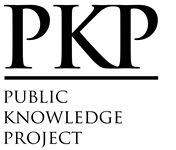Empirical Analysis of Internal Migration Influence on Development in Ghana From 1990 to 2012
Abstract
Using 800 questionnaire responses from seven regions (out of the ten regions in Ghana), this study determines how internal migration can be used to promote development in Ghana. One hundred questionnaires each was sent to three regions in the north and one hundred and twenty questionnaires to four metropolitan areas (Tamale, Accra, Kumasi and Sekondi/Takoradi). This was because these are migrants concentrated areas The data were collected by ten research assistants and twenty students from the three Universities, namely; University for the Development Studies, University of Education, Winneba and Technical Universities. The investigations show that there is a positive relationship between internal migration and socioeconomic development because the make available opportunities for access to immediate and flexible labour force. The study, therefore, recommends for policy makers to critically look at the state of internal migration in Ghana so as to institute policies that lessen the burdens of internal migrants. There is also the need to explore avenues for enhancing the resource capabilities of current migrants and their beneficiaries as a potential strategy to diversify their remunerative options in the long term.
Full Text:
PDFDOI: https://doi.org/10.5296/jsss.v1i2.5098
Refbacks
- There are currently no refbacks.
Copyright (c) 2014 Nicholas Awuse, Patrick Tandoh-Offin

This work is licensed under a Creative Commons Attribution 4.0 International License.
Journal of Social Science Studies ISSN 2329-9150
Copyright © Macrothink Institute
To make sure that you can receive messages from us, please add the 'macrothink.org' domain to your e-mail 'safe list'. If you do not receive e-mail in your 'inbox', check your 'bulk mail' or 'junk mail' folders. If you have any questions, please contact: jsss@macrothink.org
-----------------------------------------------------------------------------
